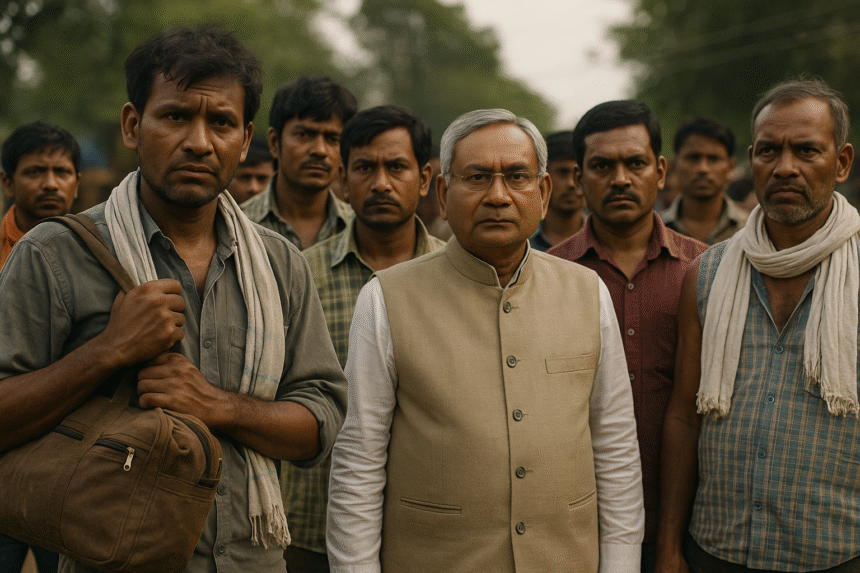Bihar, a state synonymous with large-scale migration, is set to witness an electoral twist as its migrant workers emerge as a pivotal demographic in the upcoming Assembly elections. Often overlooked in political strategies, this community’s collective voice has gained prominence, with the potential to influence outcomes in a state that has long relied on their labor but offered limited opportunities.
The Scale of Migration
According to the Ministry of Labour and Employment, Bihar accounts for one of the highest percentages of migrant workers in India, with over 30 lakh individuals leaving annually in search of better job opportunities in states like Maharashtra, Punjab, and Delhi. The pandemic underscored their plight, with thousands returning home due to job losses, sparking nationwide discussions about the need for local employment generation.
Migrant Workers: A Political Force
With the return of a significant portion of these workers during COVID-19 and many opting to stay back, their role as voters has taken on newfound importance. The Election Commission of India estimates that over 15% of Bihar’s eligible electorate comprises migrant workers or their families. This demographic’s lived experiences—marked by economic struggles and inadequate local opportunities—are likely to shape their voting preferences.
Key Issues Driving Their Vote
- Employment Generation: Bihar’s high unemployment rate, at over 14% (as per CMIE), is a pressing concern. Migrant workers are demanding policies that prioritize local job creation and skill development.
- Infrastructure Development: Poor infrastructure in rural areas has been a long-standing issue, making the demand for better roads, electricity, and healthcare services more urgent.
- Social Security: The lack of robust welfare schemes catering to migrant workers has intensified calls for comprehensive policies that address their needs, including affordable housing and access to education.
Political Parties’ Response
- Nitish Kumar’s JD(U) is emphasizing its efforts in skill development and local infrastructure under schemes like Saat Nischay, hoping to consolidate the migrant vote bank.
- BJP is leveraging its central government initiatives like PM-KISAN and the Atma Nirbhar Bharat Abhiyan, which aim to support self-reliance in rural communities.
- RJD and Congress are focusing on unemployment as a rallying cry, criticizing the current government for failing to create enough local opportunities to curb migration.
Challenges in Mobilizing Migrant Voters
Despite their growing significance, migrant workers remain a dispersed and politically underrepresented group. Ensuring their active participation in elections requires robust voter outreach programs and better logistical planning to enable them to cast their votes.
The Road Ahead
As migrant workers transition from being contributors to the economies of other states to decision-makers in their home state, their collective influence could reshape Bihar’s political narrative. For political parties, this demographic represents both a challenge and an opportunity to address long-standing issues of economic disparity and regional inequality.
The 2025 Bihar Assembly elections may well mark the beginning of a political awakening among migrant workers—a demographic that could redefine the state’s future and its place in India’s broader economic and political fabric.


Leave a Reply